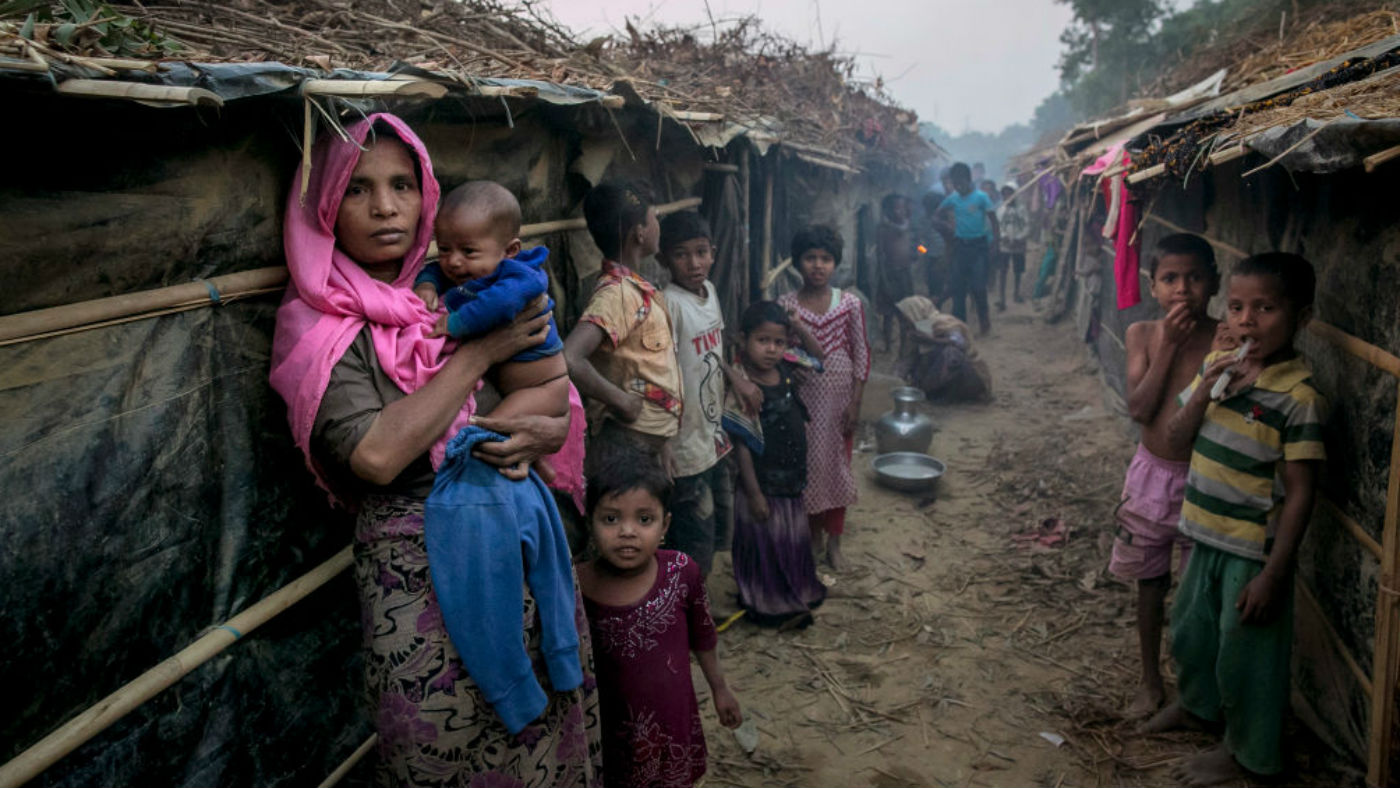UN fears at least 1,000 Rohingya Muslims slayed in Myanmar
Officials concerned that outside world does not appreciate severity of crisis

A free daily email with the biggest news stories of the day – and the best features from TheWeek.com
You are now subscribed
Your newsletter sign-up was successful
Two senior United Nations officials have reported that more than 1,000 Rohingya Muslims may have been killed in a Myanmar army crackdown – far worse than the number previously thought.
What is happening in Rakhine?
Around 70,000 Rohingya have fled from Myanmar to Bangladesh in recent months following an army crackdown north of Rakhine state, reports The Guardian. Myanmar's army began clearance operations of Rohingya from northern Rakhine during searches for insurgents thought to have masterminded deadly raids on police border posts in October. Violence, including gang rapes and mass murders, against the group is said to be so severe that it "could amount to crimes against humanity", says the UN Office of the High Commissioner for Human Rights (OHCHR).
The Week
Escape your echo chamber. Get the facts behind the news, plus analysis from multiple perspectives.

Sign up for The Week's Free Newsletters
From our morning news briefing to a weekly Good News Newsletter, get the best of The Week delivered directly to your inbox.
From our morning news briefing to a weekly Good News Newsletter, get the best of The Week delivered directly to your inbox.
What have UN officials said?
Two officials from separate UN agencies based in Bangladesh have spoken out amid concern that there is a lack of international understanding about the severity of the crisis. Both say that evidence collected from refugees over the past four months suggests that the death toll is likely to have exceeded 1,000.
"The talk until now has been of hundreds of deaths. This is probably an underestimation – we could be looking at thousands," said one of the officials, speaking on condition of anonymity.
What is the President saying?
A free daily email with the biggest news stories of the day – and the best features from TheWeek.com
A spokesman for President Htin Kyaw disputed the UN reports, claiming that his military commanders believe fewer than 100 people have been killed in the counterinsurgency operation, but added: "We have to check on the ground."
"The government led by Aung San Suu Kyi said last week it would investigate the allegations in the report. It has previously denied almost all accusations of killings, rapes and arson," says The Guardian. "But mounting evidence of atrocities by the army puts Suu Kyi, who has no control over the armed forces under a constitution written by the previous military government, in a difficult position."
-
 How the FCC’s ‘equal time’ rule works
How the FCC’s ‘equal time’ rule worksIn the Spotlight The law is at the heart of the Colbert-CBS conflict
-
 What is the endgame in the DHS shutdown?
What is the endgame in the DHS shutdown?Today’s Big Question Democrats want to rein in ICE’s immigration crackdown
-
 ‘Poor time management isn’t just an inconvenience’
‘Poor time management isn’t just an inconvenience’Instant Opinion Opinion, comment and editorials of the day
-
 Epstein files topple law CEO, roil UK government
Epstein files topple law CEO, roil UK governmentSpeed Read Peter Mandelson, Britain’s former ambassador to the US, is caught up in the scandal
-
 Iran and US prepare to meet after skirmishes
Iran and US prepare to meet after skirmishesSpeed Read The incident comes amid heightened tensions in the Middle East
-
 Israel retrieves final hostage’s body from Gaza
Israel retrieves final hostage’s body from GazaSpeed Read The 24-year-old police officer was killed during the initial Hamas attack
-
 China’s Xi targets top general in growing purge
China’s Xi targets top general in growing purgeSpeed Read Zhang Youxia is being investigated over ‘grave violations’ of the law
-
 Panama and Canada are negotiating over a crucial copper mine
Panama and Canada are negotiating over a crucial copper mineIn the Spotlight Panama is set to make a final decision on the mine this summer
-
 Why Greenland’s natural resources are nearly impossible to mine
Why Greenland’s natural resources are nearly impossible to mineThe Explainer The country’s natural landscape makes the task extremely difficult
-
 Iran cuts internet as protests escalate
Iran cuts internet as protests escalateSpeed Reada Government buildings across the country have been set on fire
-
 US nabs ‘shadow’ tanker claimed by Russia
US nabs ‘shadow’ tanker claimed by RussiaSpeed Read The ship was one of two vessels seized by the US military